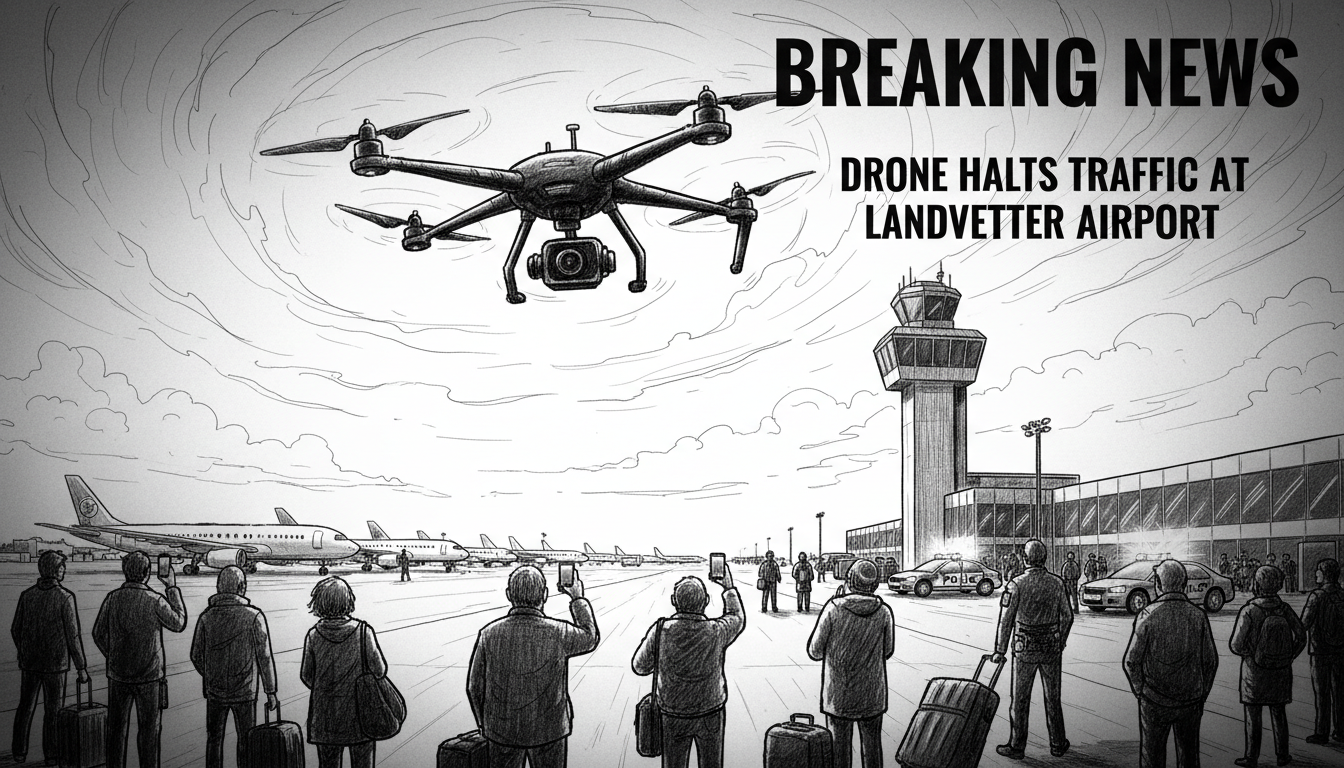Air traffic at Landvetter Airport outside Gothenburg faced major disruptions following confirmed drone sightings in the area. Airport authorities implemented an immediate airspace closure while police launched an investigation into the security breach.
Björn Stavås from the Swedish Transport Administration's press service confirmed the drone alert but noted limited initial information. "We have observed drones near Landvetter," Stavås stated. "Air traffic is currently suspended while we assess the situation."
When asked about the number of drones involved, Stavås responded, "I don't have that information at all." He also initially claimed no flights were being diverted, though airport operator Swedavia's website showed two incoming flights from Munich and Frankfurt had been redirected. At least one departure to Munich was canceled entirely.
The police received the initial alert at 5:41 PM local time. Police spokesperson Johan Håkansson confirmed authorities were taking the reports seriously but couldn't specify who reported the drones or how many were spotted. "We have received this alert and are on site to verify the information," Håkansson said. "We treat reports of suspected drones with great seriousness and are collaborating with the airport and Transport Administration."
Håkansson emphasized that police were focusing on information gathering and attempting to locate any suspicious drones or unauthorized individuals in the area. When asked if this included potential drone operators, he confirmed, "Yes, anyone who might be connected to this incident."
Susanne Norman, Swedavia's operational manager, provided a clear statement about the airport's response. "The airspace over Landvetter is currently closed due to indications of suspected drone activity," Norman wrote. "Safety always comes first, and the airspace will remain closed while police conduct their investigation."
Drone incidents at major airports have become an increasing concern across Europe in recent years. Similar disruptions have occurred at airports in London, Dublin, and Frankfurt, highlighting the vulnerability of aviation infrastructure to drone interference. Swedish authorities have been particularly vigilant since a high-profile drone incident at Stockholm's Arlanda Airport several years ago that prompted tightened regulations.
The economic impact of such closures can be substantial, with each hour of downtime costing airlines and airports significant revenue. For passengers, these disruptions mean missed connections, delayed travel plans, and uncertainty about when normal operations will resume.
Sweden's drone regulations are among Europe's strictest, requiring permits for flying near critical infrastructure like airports. Violators face severe penalties, including hefty fines and potential prison sentences. Despite these measures, identifying and apprehending drone operators remains challenging for authorities.
As investigations continue, travelers are advised to check with their airlines for updated flight information. The incident serves as another reminder of how quickly modern air travel can be disrupted by emerging security threats.

